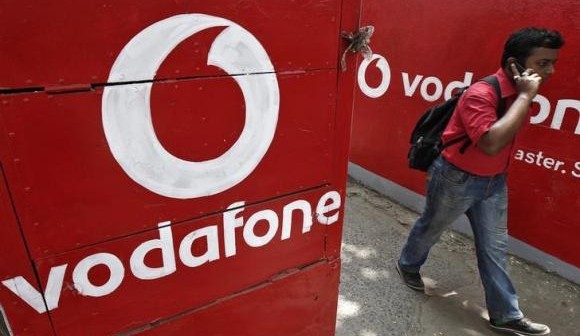Quite recently, Vodafone (NASDAQ: VOD) placed a lawsuit against the Indian Taxman and has emerged victorious. It’s interesting to note that no matter what the tax campaigners or the taxman say about the amount due, the sum to be paid by big companies does not always tally. The Vodafone (NASDAQ: VOD) vs the Indian taxman case was related to the complexities of Transfer Pricing.
In this specific case, the Tax department sent Vodafone (NASDAQ: VOD) a Rs 3200 crore tax bill, underestimating the shares that Vodafone (NASDAQ: VOD) delivered to its parent company. The Tax department said that this miscalculation of price was in fact an undercover loan that the company had taken to transfer pricing provisions. Vodafone (NASDAQ: VOD) argued that since there is no income involved, there should be no tax.
Whether Vodafone (NASDAQ: VOD) manipulated the transfer rules is beside the point, it is more important to see if the transfer rules should have applied. If Vodafone (NASDAQ: VOD) sold something within the company, then the asking price for the parent company should be the same as the asking price from companies not related to Vodafone (NASDAQ: VOD). This is the only manner in which income as well as the cost can be measured precisely and generated profits are accurate. Hence, the due taxes are paid based on the tax jurisdiction of the particular area.
According to the court’s decision, not tax needs to be paid by the Vodafone (NASDAQ: VOD) branch in Pune if no income has generated.
When Vodafone (NASDAQ: VOD) bought Hutchison-Essar Business in India, they were evaded from paying taxes after a court ruling stated that Hutchison-Essar is non-Indian company that just owned business in India. This case went all the way up to the Supreme Court but got rejected each time.
Another case that took place in UK, where Vodafone (NASDAQ: VOD) was accused of avoiding up to £6 billion in tax. Vodafone (NASDAQ: VOD) generated huge profits from its German franchises. This income was kept in Luxembourg where Germany was getting its share of taxes. The lawsuit demanded that Vodafone should pay tax to the UK taxman as well.
During the courts proceedings, the CFC rules and their applicability to companies within EU was brought into focus. Based on these rules, Vodafone (NASDAQ: VOD) got away and no taxes were paid to the UK taxman on the profits generated in Germany.
However, in the end Vodafone (NASDAQ: VOD) transferred some of their profits to UK and ended up paying a much less amount of £1.25 billion in tax.
Vodafone has been quite lucky with their tax payments in the past and has succeeded in tax evasion in most of lawsuits filed against the company. Hence, it can be concluded that taxman demands of tax payments may not always be accurate and companies can avoid paying absurd amount of taxes on their generated profits. The law also protects such revenue giants through several business and entrepreneurial decrees in place.





Pingback: cialis from canada
Pingback: generic ventolin
Pingback: viagra sale no prescription
Pingback: cialis generic
Pingback: buy ciprofloxacin
Pingback: printable cialis coupon
Pingback: buy tylenol
Pingback: viagra generic
Pingback: best ed pills non prescription
Pingback: pills erectile dysfunction
Pingback: non prescription ed pills
Pingback: cialis 10 mg
Pingback: is 20mg cialis equal to 100mg viagra
Pingback: rx pharmacy
Pingback: pharmacy online
Pingback: Get cialis
Pingback: vardenafil 10mg
Pingback: vardenafil 10 mg
Pingback: generic viagra fast delivery
Pingback: online casinos for usa players
Pingback: where to buy cialis
Pingback: legitimate online slots for money
Pingback: viagra online usa
Pingback: play for real online casino games
Pingback: real money online casinos usa
Pingback: generic drugs for sale generic cialis
Pingback: online loans
Pingback: payday advance
Pingback: short term loans
Pingback: viagra prescription
Pingback: online casino
Pingback: order viagra online
Pingback: generic cialis
Pingback: online casino games in united states
Pingback: vegas best real money casinos
Pingback: online casino usa
Pingback: craps site
Pingback: cialis 20
Pingback: new cialis
Pingback: cialis internet
Pingback: 5 mg cialis
Pingback: casinos online
Pingback: buy chloroquine phosphate
Pingback: online gambling
Pingback: online casino games real money
Pingback: casino games online
Pingback: sildenafil generic
Pingback: cheap viagra online canadian pharmacy
Pingback: discount viagra
Pingback: tadalafil 20 mg
Pingback: best viagra in usa
Pingback: cialis price
Pingback: how to buy Viagra 50 mg
Pingback: buy viagra online cheapest
Pingback: propecia 1 mg online
Pingback: arava 20 mg for sale
Pingback: avapro 300mg tablets
Pingback: avodart 0,5 mg cheap
Pingback: bactrim 800/160mg tablets
Pingback: catapres pills
Pingback: ceftin nz
Pingback: cephalexin 500 mg online pharmacy
Pingback: cipro 500mg otc
Pingback: best online casino for money
Pingback: casino games online
Pingback: casino online slots
Pingback: hollywood casino
Pingback: online casino for real cash
Pingback: slot machine games
Pingback: jupiter car insurance
Pingback: car insurance usaa
Pingback: car insurance quotes renewal
Pingback: payday loans chicago
Pingback: installment loans online
Pingback: quick loans san bernardino
Pingback: hemp cbd oil side effects
Pingback: cbd oil for arthritis pain relief
Pingback: benefits of cbd oil for cancer patients
Pingback: best rated cbd hemp oil for pain
Pingback: cbd oil health benefits
Pingback: Pharmacy viagra
Pingback: essay write
Pingback: buy custom essay
Pingback: where can i buy clomid 50mg
Pingback: clonidine 0,1 mg tablet
Pingback: Order viagra
Pingback: symbicort inhaler 160/4,5mcg coupon
Pingback: compazine 5mg pharmacy
Pingback: Pfizer viagra
Pingback: cozaar 100mg for sale
Pingback: dapsone caps generic
Pingback: ddavp 10 mcg no prescription
Pingback: cheap depakote
Pingback: Viagra mail order usa
Pingback: order dramamine 50mg
Pingback: erythromycin united kingdom
Pingback: etodolac 400 mg over the counter
Pingback: flomax 0,2 mg tablets
Pingback: flonase nasal spray 50 mcg no prescription
Pingback: how to buy geodon 20mg
Pingback: hyzaar australia
Pingback: imdur nz
Pingback: indocin prices
Pingback: levaquin generic
Pingback: macrobid medication
Pingback: cost of micardis 40 mg
Pingback: periactin price
Pingback: how to purchase phenergan
Pingback: where to buy proscar
Pingback: remeron 15mg purchase
Pingback: revatio cost
Pingback: order singulair
Pingback: how to purchase tenormin
Pingback: zestril 2,5mg tablets
Pingback: zocor 40mg australia
Pingback: spain hydroxychloroquine study
Pingback: aripiprazole medication
Pingback: order meclizine 25mg
Pingback: atomoxetine 18mg cost
Pingback: donepezil 5mg purchase
Pingback: how to buy anastrozole 1 mg
Pingback: dutasteride generic
Pingback: clonidine 0.1mg without prescription
Pingback: celecoxib cost
Pingback: citalopram 20mg generic
Pingback: how to buy clozapine
Pingback: how to buy warfarin
Pingback: trazodone 25 mg price
Pingback: tolterodine nz
Pingback: acetazolamide 250 mg cheap
Pingback: fluconazole 200mg uk
Pingback: doxycycline 100 mg without a prescription
Pingback: what is the women's version of viagra
Pingback: wat kost cialis 20 mg
Pingback: what does ivermectin do to wild birds
Pingback: sumatriptan 50 mg cost
Pingback: cialis lilly 20 mg precio
Pingback: indomethacin 25mg tablets
Pingback: cialis from canada
Pingback: how to purchase terbinafine
Pingback: levothyroxine mcg coupon
Pingback: where to buy atorvastatin 40 mg
Pingback: amoxicillin 500mg capsule price
Pingback: furosemide rx 20 mg
Pingback: ivermectin eye drops
Pingback: combivent inhaler generic
Pingback: cost of clotrimazole
Pingback: doxycycline acne treatment
Pingback: feline transdermal prednisolone
Pingback: clomid alternative
Pingback: synthroid coupon 2019
Pingback: minoxidil vs propecia
Pingback: neurontin drug test
Pingback: metformin history
Pingback: paxil and phentermine
Pingback: does plaquenil
Pingback: if harry potter had tinder
Pingback: free dating illinois
Pingback: christian dating website for free
Pingback: free senior dating sites over 60
Pingback: free web for dating
Pingback: free online dating kids
Pingback: free hispanic dating site
Pingback: free dating sights america
Pingback: free facebook dating
Pingback: free dirty dating sites
Pingback: chinese free dating site
Pingback: 100 free shemale dating sites
Pingback: single women dating free trial
Pingback: best free dating sites no fees ever
Pingback: keto cheesecake bites
Pingback: are strawberries keto
Pingback: subway keto diet